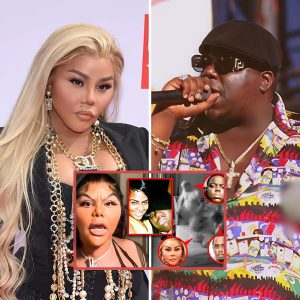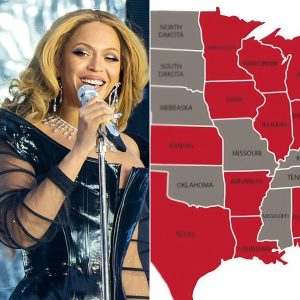Unveiling the Secrets: Lil’ Kim’s Revelations About Diddy and Biggie
Lil’ Kim is once again shaking the foundations of the hip-hop community with explosive revelations regarding her tumultuous relationships with Diddy and The Notorious B.I.G. In recent interviews, Kim has been candid about her experiences, touching on themes of manipulation, jealousy, and betrayal. As she delves into her past, it becomes increasingly clear that there are deeper issues at play within the narratives that have shaped her career and the landscape of hip-hop.
Lil’ Kim has always been a pivotal figure in rap, rising to prominence in the 1990s under the mentorship of Biggie. However, recent retrospective accounts bring her relationship with Diddy, Biggie’s longtime mentor and Bad Boy Records founder, into the spotlight. Kim has shared her perspective on how Diddy allegedly played a hand in the dynamics between her and Biggie, suggesting that there was more than just professional rivalry involved.

Kim claims that during her time with Biggie, Diddy could have manipulated their relationship. As their bond grew stronger, speculation arose that Diddy felt increasingly threatened by their closeness. According to Kim, this may have led Diddy to sow seeds of doubt between her and Biggie, potentially influencing Biggie’s treatment toward her. Some insiders argue that Diddy perceived Kim as a threat to his control over Biggie, causing him to encourage behaviors that would maintain her dependence on the Bad Boy brand.
This theory raises questions about the often murky waters of power dynamics within the music industry, particularly regarding how influential figures like Diddy might seek to control up-and-coming talent. As Kim describes it, being caught between two powerful personalities—one who adored her and another who viewed her as a liability—would be a precarious situation to navigate.
Following the tragic passing of Biggie in 1997, Lil’ Kim’s relationship with Diddy took a considerable hit. She has openly expressed that Diddy did not adequately support her during this painful time. Kim felt betrayed, especially when she noticed Diddy’s alliances shifting, particularly when he began collaborating with Nicki Minaj—her rival in the industry. In Kim’s eyes, Diddy’s actions revealed a disloyalty that exacerbated her already fraught emotions following Biggie’s death.

Years later, while promoting her own music and navigating the challenges posed by the industry, Kim has been vocal about feeling sidelined by Bad Boy Records. Despite her talent and contributions to the label’s success, there were no formal arrangements that secured her status. Diddy’s reluctance to sign her officially has led many to wonder whether he was strategically keeping her from rising too high without his express permission.
Lil’ Kim’s narrative is complicated further when considering her rise to stardom through her own hard work and artistic merit. “Hardcore,” her debut album, was a massive hit that demonstrated her prowess—not just as an artist, but as a trendsetter in rap. She has remained a prominent figure in hip-hop culture, even as she has had to combat the shadows of her past relationships with both Diddy and Biggie.

The intricacies of their relationships paint a portrait of an industry rife with competition, jealousy, and manipulation. The theories suggest that Lil’ Kim may not just be gradually lifting the veil on her own history, but could also be reflecting the broader struggles of artists in navigating the complexities of fame and mentorship in rap music.
As Lil’ Kim continues to speak out, the anticipation builds around what more she may reveal regarding her past experiences and the true nature of her relationship with Diddy and the late Biggie Smalls. Fans are left to ponder the deeper implications not just for Kim’s legacy, but the stories of countless artists who have faced similar challenges in the ever-evolving music industry.
The hip-hop community awaits more insights from Kim, as she prepares to shed light on what truly went on behind the scenes at Bad Boy Records. With each revelation, the conversation about artist autonomy, control, and the darker aspects of the music business grows more significant. What Kim shares next may not only reshape her narrative but could also foster discussions on the nature of loyalty, trust, and power in the world of entertainment.
As we look to the future, one can’t help but wonder how these unfolding stories will affect not just Lil’ Kim’s legacy, but also the overall landscape of hip-hop culture. What are your thoughts on these revelations? Do you believe Lil’ Kim was manipulated by Diddy, or is the narrative more complex than that? Feel free to share your thoughts in the comments section below.





